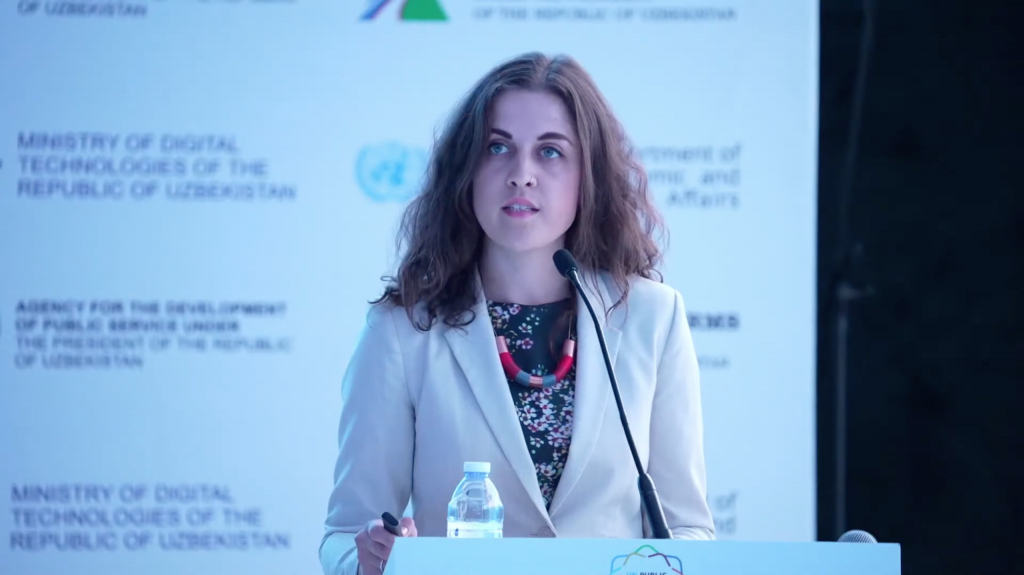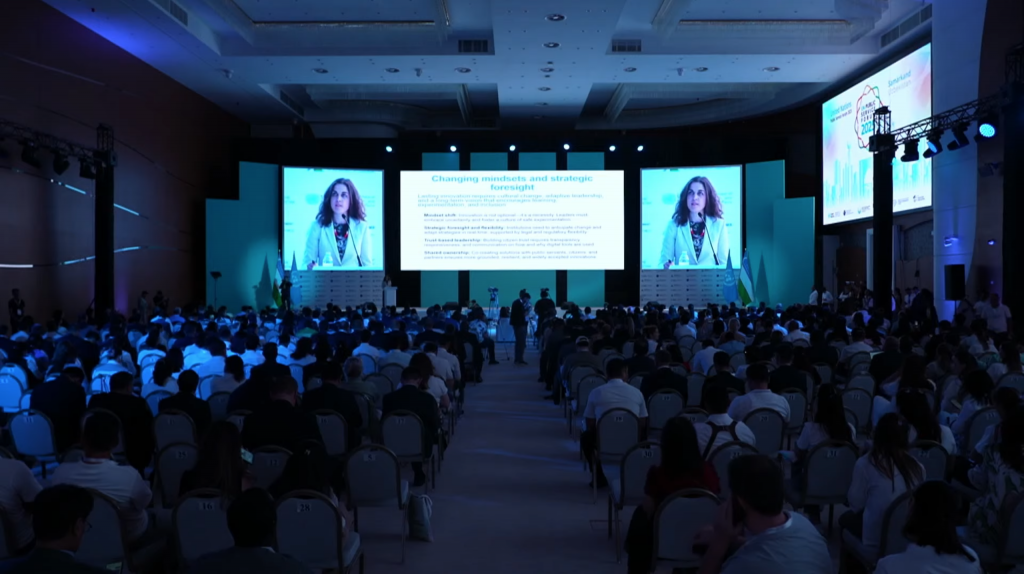
Robyn Bennett, Adviser for the Creative Bureaucracy Festival, delivered the closing speech at the United Nations Public Service Forum on 25 June 2025 in Samarkand, Uzbekistan — an inspirational reflection on service, responsibility, and what we owe future generations. Below is the full text of Robyn’s closing remarks.
Let me now begin where I started, but go deeper:
We’re not going to hit the SDGs by 2030. At least, not all of them.
And that’s not a failure of will or vision. It’s the reality of working in a world where political cycles are short, resources are scarce, and crises don’t wait for our five-year plans.
But here’s what I’ve learned from public servants around the world:
The gap between promise and delivery isn’t where hope dies. It’s where creativity is born.
National and global policies are only as effective as their implementation on the ground.
And that means localities aren’t the edges of systems change—they’re where systems succeed or fail. Where policy meets pavement. Where a budget line becomes a bus route—or doesn’t. Where the promise of housing becomes bricks and mortar—or gets lost in permitting delays.
You are not just implementing someone else’s vision. You are the inventors of what’s actually possible.
But this work also takes a toll.

When you’re working on climate adaptation, you’re holding the grief of a planet in crisis.
When you’re designing refugee services, you’re carrying the weight of human displacement.
When you’re building systems for the next generation, you’re processing the trauma of everything we’ve broken.
We need to create space for this grief and trauma. Not to wallow in it, but to process it collectively.
To acknowledge that hope without honesty is just denial.
And that healing happens in community, not in isolation.
This is part of why we need to carve out space for creativity and collective imagination. Not as luxury. As necessity. Because when the old playbooks don’t work, creativity isn’t optional—it’s how institutions survive and continue to serve.
It’s easy to lose sense of your agency in these big bureaucracies.
To feel like you’re just a small cog in a massive machine.
To forget that every system is made up of individual choices by individual people.
But you have more power than you think. We have so many zero-cost issues we could invest energy and political effort in. Small changes that could unlock enormous value. Practical steps that thaw the freeze we feel when confronted with massive challenges.
But we need to reflect on who has power and how it can be
transferred to the next generation.
Real power—not just mentorship or advice. Decision-making authority.
Budget control. Strategic direction.
The generation that will live longest with our choices deserves to shape them.
And we need to empower South-South collaboration that bypasses traditional power structures and creates new pathways
for shared learning and innovation.
So let me ask you directly:
What are you going to do differently when you go home?
Not someday.
Not when the conditions are perfect.
This week.
As Elizabeth Nyamayaro shared: “Being a good leader isn’t about being in front, it’s about removing obstacles for others.”
Your work matters. Not because you’ll solve everything, but because you’re creating the conditions for solutions we can’t yet see—and clearing the path for those who will.
